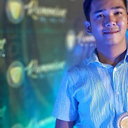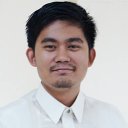Filipino prospective teachers’ experiences in teaching in K12 science curriculum: A cross-sectional research
DOI:
https://doi.org/10.22219/jpbi.v7i1.15468Abstract
The K12 science curriculum in the Philippines uses spiral progression which is a concept of learning approach where students revisit the same topics throughout their school career that increases complexity and reinforcement of previous learning. This cross-sectional study determined the experiences of Filipino prospective science teachers (PSTs) specializing in biology and physical science in teaching in the K12 science curriculum with emphasis of their challenges. The respondents of this study were 30 PSTs in five teacher education institutions (TEIs) in Central Luzon, Philippines. Results revealed that the PSTs rarely experience teaching challenges in the K12 science curriculum in terms of content knowledge and pedagogy, learning environment, diversity of learners, curriculum and planning, assessment and reporting, community linkages and professional engagement, and in personal growth and professional development. No significant differences were noted in the challenges of PSTs when grouped according to profile variables. A positive significant moderate to high correlations were noted between and among the challenges variables. The study suggests that the administration continuously spearhead in-house seminars and equip prospective teachers with innovative teaching strategies. TEIs may also consider curriculum review to align the course syllabi in the teacher education curriculum to the Department of Education curriculum. Schools may further evaluate the policies, standards, and guidelines of the teacher education curriculum to make the science education degree programs relevant.
Downloads
References
Acosta, I. C., & Acosta, A. S. (2017). A mixed methods study on teachers' perceptions of readiness of higher education institutions to the implementation of the K-12 Curriculum. Universal Journal of Educational Research, 5(7), 1215-1232. https://doi.org/10.13189/ujer.2017.050714
Akhmetova, A. I., Shirinbaeva, G., & Ussein, G. A. (2016). Structural components of psychological and pedagogical readiness of the future teachers to the spiritual and moral development. In International Scientific and Practical Conference World Science (Vol. 3, No. 9, pp. 10-12). ROST. https://cyber leninka.ru/article/n/structural
Antonio, V. V. (2018). Science laboratory interest and preferences of teacher education students: Implications to science teaching. Asia Pacific Journal of Multidisciplinary Research, 6(3), 57-67. http://www.apjmr. com/wp-content/uploads/2018/07/APJMR-2018.6.3.08a.pdf
Atmowardoyo, H. (2018). Research methods in TEFL studies: Descriptive research, case study, error analysis, and R & D. Journal of Language Teaching and Research, 9(1), 197-204. https://doi.org/10. 17507/jltr.0901.25
Aure, M. R. K. L., & Jugar, R. R. (2017). A cross-sectional study on the self-efficacy of pre-service science and mathematics teachers in a Philippine State University. Annals of Tropical Research, 39(1), 135-146. https://doi.org/10.32945/atr3919.2017
Beutel, D. A., & Tangen, D. (2018). The impact of intercultural experiences on preservice teachers’ preparedness to engage with diverse learners. Australian Journal of Teacher Education, 43(3), 168-179. http://dx.doi.org/10.14221/ajte.2018v43n3.11
Cabansag, M. G. S. (2014). Impact statements on the K-12 science program in the enhanced basic education curriculum in provincial schools. Researchers World, 5(2), 29-39. https://www.semanticscholar.org/ paper/impact
De Ramos-Samala, H. (2018). Spiral progression approach in teaching Science: A case study. KnE Social Sciences, 555-567. https://doi.org/10.18502/kss.v3i6.2404
Department of Education. (2017). National adoption and implementation of the Philippine professional standards for teachers (Dep Ed Order 42 s. 2017). https://www.deped.gov.ph/wp-content/uploads/ 2017/08/DO_s2017_042-1.pdf
Department of Education. (2019). PISA 2018 national report of the Philippines. Department of Education. https://www.deped.gov.ph/wp-content/uploads/2019/12/PISA-2018-Philippine-National-Report.pdf
Dunton, J. B. (2019). Spiral progression approach in teaching science and the performance of learners in District I, Capiz. In Journal of Physics: Conference Series (Vol. 1254, No. 1, p. 012045). IOP Publishing. https://doi.org/10.1088/1742-6596/1254/1/012045
Elom, S. O., & Egba, N. A. (2015). Marital stress and extraversion personality as predicators of job satisfaction among married women teachers in Enugu, Nigeria. Journal of Education and Practice, 6(33), 61-66. https://files.eric.ed.gov/fulltext/EJ1083492.pdf
Gonzales, N. J. (2019). Narrative experience of seasoned teachers in teaching science using spiral progression curriculum. IOER International Multidisciplinary Research Journal, 1(2), 59-68. https:// papers.ssrn.com/sol3/papers.cfm?abstract_id=3418396
Handa, V. C., & Tippins, D. J. (2012). Cultural memory banking in preservice science teacher education. Research in Science Education, 42(6), 1201-1217. https://doi.org/10.1007/s11165-011-9241-6
Handa, V. C., & Tippins, D. J. (2013). Tensions in the third space: Locating relevancy in preservice science teacher preparation. International Journal of Science and Mathematics Education, 11(1), 237-265. https://doi.org/10.1007/s10763-012-9364-x
Hsu, P.-L. (2016). Science teaching experiences in informal settings: one way to enrich the preparation program for preservice science teachers. Universal Journal of Educational Research, 4(5), 1214–1222. https://doi.org/10.13189/ujer.2016.040535
K12 Science Curriculum Guide (2016). Department of Education. http://www.deped.gov.ph/wpcon tent/uploads/2019/01/Science-CG_with-taggedsci-equipment_revised.pdf
Khosravi, H., & Cooper, K. (2018). Topic dependency models: graph-based visual analytics for communicating assessment data. Journal of Learning Analytics, 5(3), 136-153. https://doi.org/10. 18608/jla.2018.53.9
Laguatan, R. P., & Abad, B. D. (2019). Science teacher's qualities: The basis for a faculty sustainability program. International Journal of Innovation, Creativity and Change, 8(7), 232-249. https://eric.ed.gov/ ?id=ED606758
Maing, E. M., Mangadang, A. T., Salic-Hairulla, M. A., Canalita, E. E., Sequente, F. R., & Yuenyong, C. (2019, October). Assessment of science teacher competence in teaching secondary science with spiral progression approach. In Journal of Physics: Conference Series (Vol. 1340, No. 1, p. 012059). IOP Publishing. https://doi.org/10.1088/1742-6596/1340/1/012059
Manalansan, E. B. R., Fogata, M. A., & Rogayan, D. V. Jr. (2020). Exploring prospective teachers' reasons for choosing general science as a specialization. Journal of Science Learning, 3(3), 149-155. https://doi.org/10.17509/jsl.v3i3.23493
Mangali, G. R., Tongco, C., Aguinaldo, K. P., & Calvadores, C. J. (2019). Stories of students toward spiral progression approach in science: A phenomenological study. International Journal of Multidisciplinary Research and Publications, 2(2), 27-48. http://ijmrap.com/wp-content/uploads/2019/07/IJMRAP-V2N2P11Y19.pdf
Mautone, J. A., Marcelle, E., Tresco, K. E., & Power, T. J. (2015). Assessing the quality of parent–teacher relationships for students with ADHD. Psychology in the Schools, 52(2), 196-207. https://doi.org/10. 1002/pits.21817
Mercado, J. N. L., Panganiban, V. J. M., & Ramos, T. M. I. (2019). Technology integration in teaching science using TPACK among pre-service science teachers of St. Bridget College, Batangas City, Philippines. IOER International Multidisciplinary Research Journal, 1(1), 67-75. https://ssrn.com/abstract=3379278
Miranda, J. R. L. (2014). An analysis of philosophical foundation of science education in the Philippines. Journal of Science & Technology, 1(1), 1. https://ssctjst.org/index.php/jst/article/view/41
Mizzi, D. (2013). The challenges faced by science teachers when teaching outside their specific science specialism. Acta Didactica Napocensia, 6(4), 1-6. https://eric.ed.gov/?id=EJ1053677
Montebon, D. T. (2014). K12 science program in the Philippines: Student perception on its implementation. International Journal of Education and Research, 2(12), 153-164. https://ijern.com/ journal/2014/December-2014/15.pdf
Montebon, D. R. T. (2015). Science pre-service teachers experience on teaching beyond subject expertise. Journal of Science and Mathematics Education in Southeast Asia, 38(2), 126-139. https:// eric.ed.gov/?id=EJ1177143
Orbe, J. R., Espinosa, A. A., & Datukan, J. T. (2018). Teaching chemistry in a spiral progression approach: Lessons from science teachers in the Philippines. Australian Journal of Teacher Education, 43(4), 17-30. https://doi.org/10.14221/ajte.2018v43n4.2
Plackle, I., Könings, K. D., Jacquet, W., Struyven, K., Libotton, A., van Merriënboer, J. J., & Engels, N. (2014). Students’ preferred characteristics of learning environments in vocational secondary education. International Journal for Research in Vocational Education and Training (IJRVET), 1(2), 107-124. https://doi.org/10.13152/ijrvet.1.2.2
Resurreccion, J. A., & Adanza, J. (2015, March). Spiral progression approach in teaching science in selected private and public schools in Cavite. In Proceedings of the DLSU Research Congress (Vol. 3, pp. 1-12). http://uruae.org/siteadmin/upload/UH0516148.pdf
Reusia, D. H. R., Danilo Jr, V. R., & Andres, K. P. (2020). Science education graduates of a state university from 2008-2018: A tracer study. The Normal Lights, 14(1), 56-79. https://po.pnuresearchportal.org/ejournal/index.php/normallights/article/view/1496
Rivera, J. G. (2017). Articulating the foundations of Philippine K to 12 curriculum: Learner-centeredness. AsTEN Journal of Teacher Education, 2(1), 59-70. https://po.pnuresearchportal.org/ ejournal/index.php/asten/article/view/554
Rogayan, D. V. Jr., & Dollete, L. F. (2019). Development and validation of physical science workbook for senior high school. Science Education International, 30(4), 284-290. https://doi.org/10.33828/sei.v30. i4.5
Rogayan, D. V. Jr. & Albino, M.M. (2019). Filipino students’ common misconceptions in biology: Input for remedıal teachıng. Online Science Education Journal, 4(2), 90-103. https://dergipark.org.tr/en/pub/ ofed/issue/50430/567349
Rogayan, D. V., Jr. (2019). Retrospective evaluation of the science education program in a Philippine state university. International Journal of Innovation, Creativity & Change, 8(7), 352- 369. https://eric.ed.gov/? id=ED603046
Rosenkranzer, F., Hörsch, C., Schuler, S., & Riess, W. (2017). Student teachers’ pedagogical content knowledge for teaching systems thinking: effects of different interventions. International Journal of Science Education, 39(14), 1932–1951. https://doi.org/10.1080/09500693.2017.1362603
Sakib, E. J., & Obra Jr, M. R. (2019). Teachers’ preparedness in teaching K to 12 secondary science curriculum. Asia Pacific Journal of Multidisciplinary Research, 7(2), 123-132. http://www.apjmr.com/wp-content/uploads/2019/06/APJMR-2019.7.2.2.14.pdf
Sañosa, M. E. (2013). Implementation of K to 12 curriculum program among grade 7 science teachers in Eastern Visayas. Journal of Society and Technology, 3(1), 37-44. http://www.jst-online.org/index.php/ JST/article/view/10
Sukhbaatar, B. (2018). Preservice teachers' views on working with diverse families in Mongolia. School Community Journal, 28(1), 295-318. https://eric.ed.gov/?id=EJ1184926
Thijs, J., & Eilbracht, L. (2012). Teachers' perceptions of parent–teacher alliance and student–teacher relational conflict: Examining the role of ethnic differences and “disruptive” behavior. Psychology in the Schools, 49(8), 794-808. https://doi.org/10.1002/pits.21635
Tosuncuoglu, I. (2018). Importance of Assessment in ELT. Journal of Education and Training Studies, 6(9), 163-167. https://doi.org/10.11114/jets.v6i9.3443
Turkçapar, U. (2015). Analyzing state and private school students achievement goal orientation levels in terms of some variables. Educational Research and Reviews, 10(20), 2695-2701. https://doi.org/10. 5897/err2015.2458
Walag, A. M. P., Fajardo, M. T. M., Guimary, F. M., & Bacarrisas, P. G. (2020). Science teachers’ self-efficacy in teaching different K to 12 science subjects: The case of Cagayan De Oro City, Philippines. Science International (Lahore), 32(5), 587-592. https://www.researchgate.net/publication/344892479

Downloads
Published
Issue
Section
License
Copyright (c) 2021 Antipolo & Rogayan

This work is licensed under a Creative Commons Attribution-ShareAlike 4.0 International License.
Authors who publish with JPBI (Jurnal Pendidikan Biologi Indonesia) agree to the following terms:
- For all articles published in JPBI, copyright is retained by the authors. Authors give permission to the publisher to announce the work with conditions. When the manuscript is accepted for publication, the authors agree to automatic transfer of the publishing right to the publisher.
- Authors retain copyright and grant the journal right of first publication with the work simultaneously licensed under a Creative Commons Attribution-ShareAlike 4.0 International License that allows others to share the work with an acknowledgment of the work's authorship and initial publication in this journal.
- Authors are able to enter into separate, additional contractual arrangements for the non-exclusive distribution of the journal's published version of the work (e.g., post it to an institutional repository or publish it in a book), with an acknowledgment of its initial publication in this journal.
- Authors are permitted and encouraged to post their work online (e.g., in institutional repositories or on their website) prior to and during the submission process, as it can lead to productive exchanges, as well as earlier and greater citation of published work (See The Effect of Open Access).

This work is licensed under a Creative Commons Attribution-ShareAlike 4.0 International License.



















